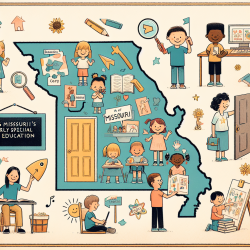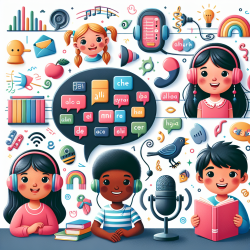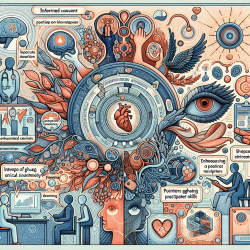Missouri's Early Childhood Special Education (ECSE) program ensures that young children with disabilities receive the support they need. Here's a simple guide to help you understand the key aspects of ECSE.
Child Find Requirement for ECSE
The Child Find requirement falls under Part B of the Individuals with Disabilities Education Act (IDEA). This mandates that school districts identify, locate, and evaluate all children aged 3-5 who may need special education services. Each district must advertise this responsibility to the public before November 1st every year.
Making a Referral for ECSE Services
Referrals for ECSE services can be made by either parents or public agencies. If you suspect your child, aged 3-5, has a developmental delay or disability, you should contact your local education agency (LEA) for an evaluation. For more information on the evaluation process, visit this link.
Referral Process and Timelines
- Parent Referral: The timeline starts the day the parent requests an evaluation.
- Agency Referral: The timeline starts once the LEA determines there is a reason to suspect a disability.
The 30-60-30 timeline means:
- 30 days to decide whether to evaluate.
- 60 days to conduct the evaluation.
- 30 days to develop an Individualized Education Program (IEP).
Evaluation and Eligibility
- Timelines: The resident district is responsible for meeting all timelines, even if using an early childhood cooperative.
- Review of Existing Data (RED): Must be completed within 30 days of referral unless there are acceptable delays like snow days.
- Parental Consent: If the LEA cannot obtain consent after two attempts, they are not obligated to proceed with the evaluation.
Developing the IEP
Once a child is deemed eligible, an initial IEP must be developed within 30 days. This timeline applies even if the school year has scheduled breaks.
Responsibility and Transition
If a child begins the evaluation process in one district and moves to another, the new district must follow the original timelines to ensure a seamless transition.
Eligibility Categories
Children can be identified under the category of Young Child with a Developmental Delay (YCDD) or other categories used for older children. The YCDD category requires specific developmental delays.
IEP Meeting Requirements
A regular education teacher must participate in the initial IEP meeting for all eligible children, even if the child only receives speech services.
Placement and Location
The district of residence is responsible for providing services. Placement options include:
- Early Childhood Setting: Programs designed for children without disabilities.
- Early Childhood Special Education Setting: Programs designed primarily for children with disabilities.
Caseloads and Paraprofessionals
Caseload requirements are detailed in the Missouri State Plan. Additional paraprofessionals may be added if documented in the IEP.
Transportation
The IEP team decides if transportation is necessary as a related service. If needed, it must be included in the IEP.
Integrated Classrooms
An integrated classroom consists of an ECSE teacher instructing both IEP and non-IEP students. The ECSE program covers allowable costs if caseload requirements are met.
Tuition and Preschool/Daycare
If a child's IEP requires services at a preschool or daycare, the district must pay for the specific time designated for special education services.
For more information, please follow this link.










